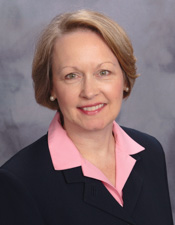Conferees agree to omnibus ed. finance proposal that defunds voluntary pre-k
After weeks of debate over the best way to reduce the achievement gap through early learning opportunities, House and Senate conferees agreed on a proposal supporters say would provide increased funding for schools, but opponents warn falls short of intended objectives.
Sponsored by Rep. Jenifer Loon (R-Eden Prairie) and Sen. Carla Nelson (R-Rochester), HF890*/SF718, the omnibus education finance bill, is likely to spur contentious negotiations with Gov. Mark Dayton via its proposal to defund voluntary pre-kindergarten programs across the state. More funding has been a gubernatorial priority this session.
Tuesday, the conference committee adopted a 149-page delete-all amendment that will serve as the basis for the final bill that is to be negotiated with Dayton. No conference committee report was signed.
The nearly $18.58 billion proposal, a nearly $303.4 million base increase, would increase General Education Basic Formula funding by 1.5 percent over the 2018-19 biennium, resulting in an additional $247.7 million, the number put forth in the Senate proposal. The House sought a 1.25 percent increase, or $207.7 million.
“We share many common priorities, including an increase to the general education formula,” Loon said.
Opponents have argued a 2 percent increase is necessary to keep up with inflation and rising costs.
Education Commissioner Brenda Cassellius warned conferees they need to get closer to the governor’s number of a $367.27 million bump.
“I think it’s going to be really damaging when school districts get these budgets,” she said. “We leave our school districts holding the bag.”
Allocating opportunity
Voluntary pre-k programs currently receive $25 million in base funding and serve an estimated 3,300 4-year-olds at 74 school districts across the state. Dayton is proposing a biennial budget number of $175 million to increase funding and grow program reach.
Under the approved amendment, its funding would be replaced by $112.9 million in school readiness funding and $138.7 million for early learning scholarships.
Supporters say it’s a more targeted approach to reach students in need.
“We want to commit to proven strategies, and empower parents to choose the best programs for their students and the needs of their families,” Loon said.
But opponents contend the move could create a “voucher system” vacuum on public schools, further perpetuating inequity.
“I was hoping we would see an improvement in the amount of education dollars invested in children. Unfortunately that didn’t happen,” Cassellius said. “We’re missing an opportunity. We have got to do better for our kids than what we’re doing in this bill.”
“The Republican plan to underfund public schools and cut pre-K is playing politics with our children’s future,” House Minority Leader Melissa Hortman (DFL-Brooklyn Park) said at an April 27 news conference.
The bill also contains numerous policy provisions, including the controversial closure of the Perpich Center for Arts Education.
Dayton has said he doesn’t want policy provisions included in omnibus finance bills.
Related Articles
Search Session Daily
Advanced Search OptionsPriority Dailies
Ways and Means Committee OKs proposed $512 million supplemental budget on party-line vote
By Mike Cook Meeting more needs or fiscal irresponsibility is one way to sum up the differences among the two parties on a supplemental spending package a year after a $72 billion state budg...
Meeting more needs or fiscal irresponsibility is one way to sum up the differences among the two parties on a supplemental spending package a year after a $72 billion state budg...
Minnesota’s projected budget surplus balloons to $3.7 billion, but fiscal pressure still looms
By Rob Hubbard Just as Minnesota has experienced a warmer winter than usual, so has the state’s budget outlook warmed over the past few months.
On Thursday, Minnesota Management and Budget...
Just as Minnesota has experienced a warmer winter than usual, so has the state’s budget outlook warmed over the past few months.
On Thursday, Minnesota Management and Budget...
